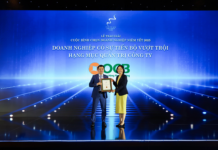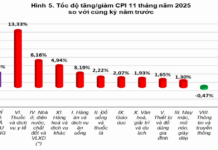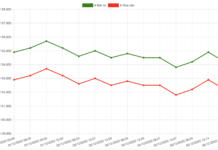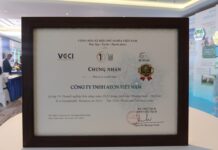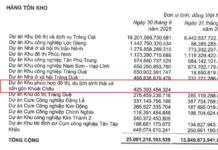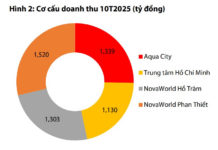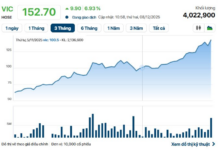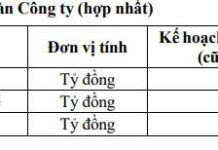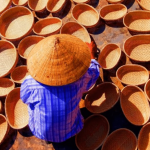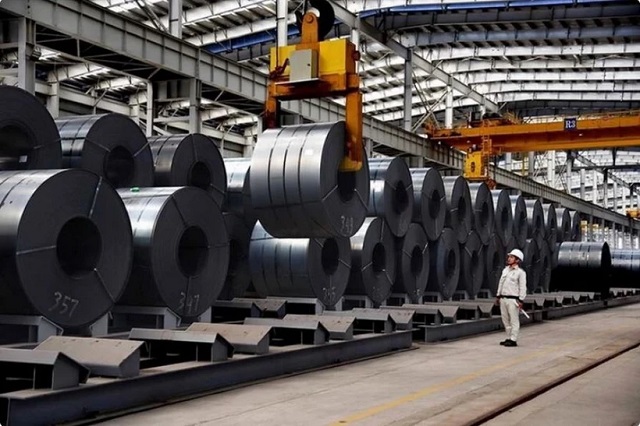
Vietnam has risen to 12th place globally in crude steel production, with an output of 20 million tons.
Steel companies continue to invest in modern technology, improve product quality, and expand their export markets.
However, experts still assert that the steel industry faces challenges in competing with imported products. In the past years, the influx of foreign steel has continuously threatened domestic production and market share.
Now, more than ever, the steel industry needs support in the form of policies to enhance the competitiveness of its products and safeguard against imports.
Reducing Dependence on Imported Steel
According to the Vietnam Steel Association (VSA), Vietnam remains a net importer of steel. While crude steel production meets basic domestic demands, there is a shortage of high-quality and technical steel products.
Mr. Nghiem Xuan Da, Chairman of VSA, stated that steel production currently faces a situation where supply exceeds demand, coupled with increasing imports, which intensifies price competition in the domestic steel market. In the first six months of this year, hot-rolled steel imports reached nearly 6 million tons, a 32% increase compared to the same period last year. Notably, these imports are 173% of domestic production; among which, steel imported from China accounts for 74%, with the rest coming from South Korea, India, and Japan.
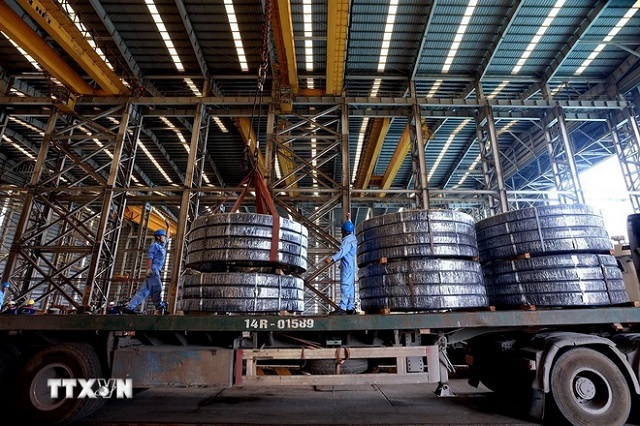 Finished steel being transported to the warehouse for export. (Photo: Tuan Anh/VNA)
|
With such a significant volume of imports, VSA informed that the production of the two domestic hot-rolled steel manufacturers, Formosa and Hoa Phat, has declined to 73% of their designed capacity compared to 86% in 2021 due to competition with underpriced imported steel.
Regarding prices, import prices dropped significantly from 613 USD at the beginning of last year to 541 USD at the end of the year. The surge in imports and low prices caused the market share of the two domestic HRC producers to plummet from 45% in 2021 to 30% last year. It is anticipated that the continuing rise in imports this year will affect the self-sufficiency efforts in high-quality steel production.
Mr. Nguyen Huu Truong Hung, representing the Trade Remedies Authority under the Ministry of Industry and Trade, opined that in the near future, the steel industry would continue to face challenges in competing with imported Chinese steel in the domestic market due to its small production scale and high production costs.
Mr. Phan Dang Tuat, Chairman of the Vietnam Supporting Industry Association, expressed that while it is natural to import high-quality steel when it cannot be produced domestically, Vietnam has now mastered the production of competitive steel products. However, this particular type of steel continues to flood the market, especially with recent indications of underpriced sales, which necessitates considering the initiation of an anti-dumping investigation. Otherwise, there is a risk of losing market share due to unfair competition.
Safeguarding Against Foreign Competition
In reality, Vietnam has implemented numerous solutions to protect domestic industries from imported products. To date, the Ministry of Industry and Trade has initiated investigations into 29 trade remedy cases and applied 22 measures on imported goods. Among these, four trade remedy measures are currently in effect for imported steel products, one measure for a product related to steel (welding material), and two cases are under investigation concerning prestressed concrete steel wire and wind turbine towers.
Additionally, the Ministry of Industry and Trade is conducting an end-of-term review of the application of anti-dumping measures on cold-rolled stainless steel and coated steel to assess the effectiveness of the measures and the possibility of extending them for another five years. The results of these two reviews are expected in October. Furthermore, the Ministry recently decided to investigate the anti-dumping of hot-rolled steel from India and China.
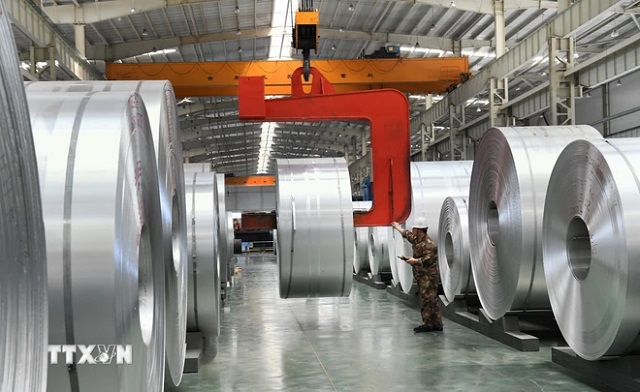
Steel coil transportation at a factory in Zhouping, Shandong Province, China. (Photo: AFP/VNA)
|
According to the Ministry of Industry and Trade representative, the application of trade remedies on basic materials also enhances the utilization of commitments in free trade agreements. Simultaneously, it reduces the risk of Vietnam being investigated by foreign countries for evading trade remedy measures by proactively protecting domestic raw material production. Moreover, the applied trade remedy measures have contributed thousands of billions of VND in taxes to the state budget.
To support the steel industry, which underpins many other manufacturing industries, Mr. Phan Dang Tuat suggested that the government implement solutions to assist domestic businesses in improving their competitiveness. Local enterprises like Hoa Phat have invested in producing steel for cable-stayed bridges and railways and are ready to manufacture steel for mechanical engineering equipment.
“The government should support domestic businesses in upstream investment through technical and tariff barriers in the long term, while anti-dumping measures are necessary in the short term. Investigations not only protect domestic production but also prevent importing countries from considering Vietnam as a ‘transshipment market’ for dumped goods,” asserted Mr. Phan Dang Tuat.
Steel industry expert, Mr. Nguyen Van Sua, stated that to enhance competitiveness in the current context of integration, businesses should not solely rely on support mechanisms and policies from state agencies. Instead, they need to define their sustainable growth model, focusing on quality and depth, where technology, labor productivity, and environmental protection play essential roles in value addition and product value.
Recently, the Ministry of Finance concurred with the Vietnam Steel Association’s opinion on the necessity of implementing appropriate trade remedy measures to protect domestic producers. Regarding import and export taxes, adjustments should be made to gradually increase the rates, with lower rates for raw materials and higher rates for more refined products, contributing to legal barriers to protect domestic producers.
The Ministry of Industry and Trade recognizes that developing a robust steel industry also lays a solid foundation and expands the market for manufacturing, construction, and mechanical industries, among others. Therefore, there is a need for policy orientations to promote the development of metallurgy and materials industries, especially steel for manufacturing, accompanied by appropriate solutions to protect domestic production in line with international practices and prevent dumping./.
Duc Dung
The most extensive bribery case ever in Thanh Hoa: Numerous suspects prosecuted for “Giving and Receiving Bribes”
The Provincial Security Investigation Agency (PSIA) of Thanh Hoa province announced on January 31st that it has made the decision to initiate a prosecution against 23 individuals in connection with the offenses of “Accepting bribes” and “Giving bribes” as stipulated in Article 354(3) and Article 364(2) of the Criminal Code.
Accelerating disbursement of the 120 trillion VND credit package for social housing
Deputy Prime Minister Trần Hồng Hà has recently issued directives regarding the implementation of the 120,000 billion VND credit package for investors and buyers of social housing, workers’ housing, and projects for the renovation and construction of apartment buildings.
Vietnam’s Irresistible ‘Specialty’ That China Desperately Wants to Revive: Highly Popular from the US to Asia, Bringing in Millions of Dollars
Vietnam is one of the largest exporting countries in the world, along with China and the Philippines.






